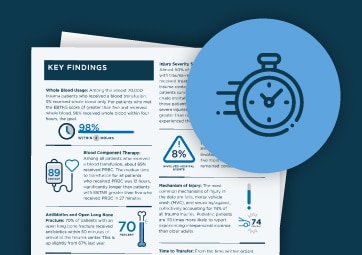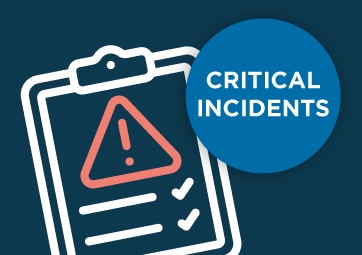“Integrating community paramedicine into our community has helped give a voice to people that have historically been marginalized.”
James McLaughlin
Community Paramedic Director at Ute Pass Regional Health Service District
Covering over 500 square miles of rural territory surrounding Pikes Peak, the Ute Pass Regional Health Service team is tasked with providing outstanding care for a widely underserved population in often remote mountainous terrain.
With a 50-mile drive between some residents and basic healthcare, their area is considered a “healthcare desert.” A lack of resources can sometimes put community members and providers into a difficult situation when their need for care is urgent –with community members having to decide on waiting around for a potentially costly ambulance ride and providers having to decide on how to best allocate limited emergency resources.
As a team dedicated to providing holistic care that’s both high-quality and individualized to each member of their community, Ute Pass’s Health Service team developed a Mobile Integrated Health (MIH) program centered on community paramedicine to better support their mission and alleviate difficult decision-making.
“I see people who often feel unseen. I hear people that often feel unheard and helping them find the access to care that they deserve as a basic human right is meaningful to me.”
James McLaughlin
Community Paramedic Director at Ute Pass Regional Health Service District
Supporting the whole patient (not just the injury)
Through their home program, Ute Pass provides alternate response options, including a community paramedic sent out directly to patients for basic, non-emergent care, or full exams with a board-certified emergency physician via telehealth. Through this approach, the team is not only able to treat their patients with the best possible care for their full needs, but it has allowed them to:
- Save their organization an average of $2,200 in hospital transportation costs per patient by providing the right care required
- Utilize motivational interviewing and trauma-informed approaches for a more patient-centric experience
- Empower patients to seek treatment when they would otherwise not
- Use telehealth to increase access to medicine for isolated populations
- Ensure resources go to the most-pressing emergencies
To hear more on how mobile integrated health has transformed healthcare in the Ute Pass community directly from their team, watch the full video.
“This isn’t idealism. We know it’s working. And how do we know it’s working? Because we’re collecting the data to tell the story.”
James McLaughlin
Community Paramedic Director at Ute Pass Regional Health Service District


